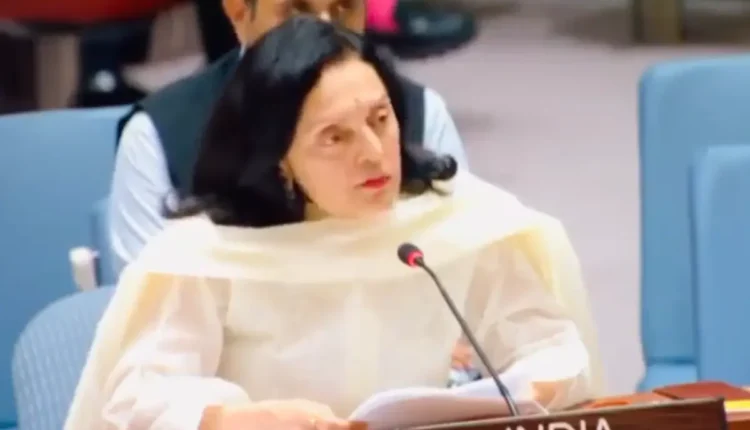UNSC : India Calls To Gain Momentum
UNSC : India Calls for UN Security Council Expansion to Reflect New Realities
UNSC : In a bid to reshape the global diplomatic landscape, India has issued a compelling call for the expansion of the United Nations Security Council (UNSC) in both permanent and non-permanent categories of membership. This bold initiative was reaffirmed by Indian Prime Minister Narendra Modi during the closing session of the two-day G20 summit, which concluded under India’s presidency. The move has garnered praise from influential nations, including the United States, Russia, and France.
The Permanent Representative of India to the United Nations, Ruchira Kamboj, emphasized the importance of expanding the UNSC to ensure that developing countries and underrepresented regions have a rightful place at the United Nations. Kamboj stated, “What we need is a Security Council that better reflects the geographical and developmental diversity of the United Nations today. A Security Council where voices of developing countries and unrepresented regions find their due place at this horseshoe table.”
This push for expansion aims to bring the UNSC’s composition and decision-making dynamics in line with contemporary geopolitical realities. Kamboj urged countries to openly support a clear and time-bound pathway for this reform, emphasizing its necessity as international threats to peace and security continue to evolve.
UNSC & India’s Call
India’s call for UNSC expansion is not isolated; in July, the United Kingdom also advocated for the inclusion of India, Brazil, Germany, and Japan as permanent members, along with African representation. This move signifies the pressing need for the powerful UN body to adapt to the challenges and opportunities of the 21st century.
The United Nations Security Council, one of the UN’s six principal organs, is entrusted with the critical task of ensuring international peace and security. It holds the authority to recommend the admission of new UN members to the General Assembly, enact international sanctions, and authorize military action, as outlined in the United Nations Charter. Of its fifteen members, five are permanent, namely China, France, Russia, the United Kingdom, and the United States, while the remaining ten are elected on a regional basis for two-year terms. The presidency of the UNSC rotates monthly among its members.
The current composition, dating back to the aftermath of World War II, has been the subject of ongoing debate and critique, with calls for reform echoing worldwide. India’s renewed push at the G20 summit underscores the urgency of making the UNSC more inclusive, accountable, and reflective of the world’s new realities.
Also Read : G20 Summit : In India A Landmark Event of Consensus and Innovation

